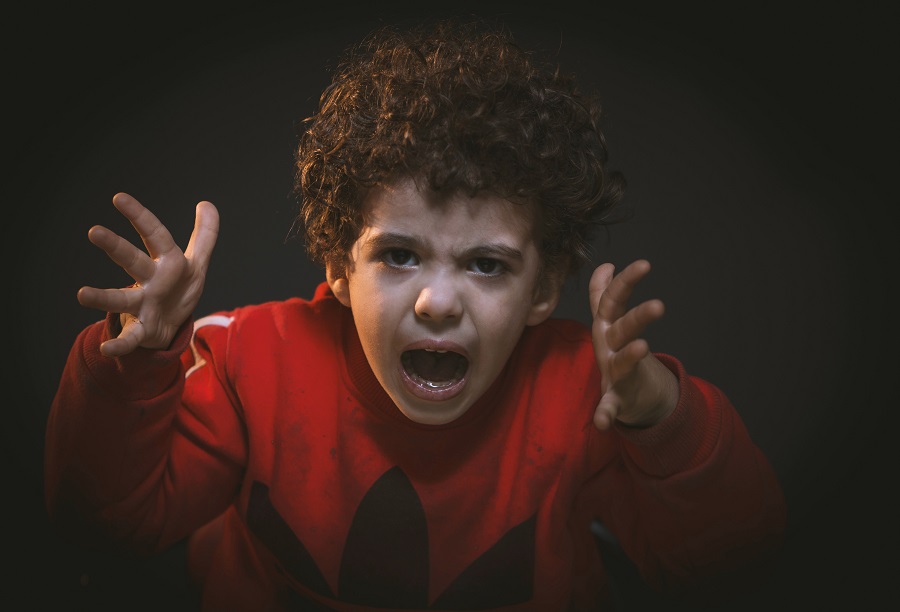Autism spectrum disorders are a group of long-lasting developmental disorders that are marked by problems with social interaction and communication and by limited interests and behaviors.
Children with autism spectrum disorder (ASD) have trouble with executive skills like paying attention, staying on task, remembering things, and getting things in order. Your child may struggle with adapting to transitions, social interactions and behaviors, communication, and having limited interests.
These things can impact how well they do in school and life. Also, if your child has trouble communicating verbally and nonverbally, it can be hard for them to make friends and show how they feel. Additionally, many children and teens with autism experience anxiety more intensely than other children their age.
Anxiety and Overstimulation
Understanding what anxiety is and how it manifests in the body will help you assist your autistic kid through stressful situations. During stress and anxiety, when the brain senses a threat, the sympathetic part of the Autonomous Nervous System (ANS) produces the stress hormones adrenaline and cortisol. These hormones start the “fight or flight” response.
After the threat has passed, these hormones return to normal levels, and the person may resume regular functioning. However, children with autism experience too much sensory stimulation. When they experience sensory overload, their brain is overwhelmed and unable to process the stimulation from their surroundings. So, your child’s central nervous system sees these outside stimuli as threats, which can cause anxiety, meltdowns, or aggressive outbursts.
Signs of Anxiety in Autistic Children
Because children with autism often lack the skills to identify and express their anxiety, you might recognize it in their challenging behaviors. For example, if your autistic child is worried or scared, they might start stimming or act aggressively and bite another child. They might also begin hitting their head against the wall or find other ways to hurt themselves. Also, they might not pay attention to your requests or start acting socially inappropriately in public.
Other signs of anxiety in children with autism may include:
Meltdowns
Insisting on obsessive rituals
Withdrawal from social situations
Problems sleeping
Five Ways to Help Your Autistic Child Manage Anxiety
Some children on the autism spectrum experience higher levels of stress and anxiety than their typically developing peers. There are things you can do to recognize what sets off your child’s anxiety reactions and learn strategies to help them cope.
1. Identify Your Child’s Triggers
Finding out what worries and scares your child is the first step to calming them down and helping them deal with it. Writing a journal can be a helpful way to track your child’s mood changes and identify their triggers. Take notes of small changes in their routines, new situations, or environment, for example. For instance, any physical discomfort, such as tight clothing, pain, or cold, can cause anxiety in children with ASD. Also, if your child doesn’t get enough sleep, they may feel anxious and act out during the day. Do you observe a change in their behavior when they experience unfamiliar social situations, such as a Halloween party at a new friend’s house, travelling to a new place, or starting a new school? Many autistic children experience anxiety when their typical environment and routines are disrupted. This might range from a new carpet in their bedroom to missing school due to illness or relocating to a new place. Furthermore, some children with ASD may struggle with transitions during the day or have sensory sensitivity.
If your autistic child experiences sensory sensitivity, they may become overwhelmed by certain noises, textures, flavors, or bright lights.
Once you’ve identified some of the things that trigger your child’s anxiety, it might be a good idea to make a list of them, along with ways to deal with them.
2. Practice Relaxation Together
Simple mindfulness and breathwork techniques, such as counting to ten or taking five deep breaths, can help your child relax and calm down when stressed. You may also engage in any other relaxation tactic your child loves, such as reading a favorite book, going on a walk,
visiting a quiet place in the backyard, etc.
3. Get Support
Psychotherapy, counselling, and medication might help if your child’s anxiety interferes with their daily life. A psychologist or other mental health professional who specializes in autism can also help you and your child come up with ways to recognize and deal with anxiety.
Talk to their healthcare provider to determine the most appropriate therapies for your child. If you need support with your child’s challenging behavior, a psychologist or Applied Behavior Analysis (ABA) practitioner can assist you with behavior management.
4. Make Music a Regular Part of Your Child’s Life
Music promotes relaxation, self-expression, and self-regulation. As a result, listening to music may be a deeply calming experience for children with autism, which also helps them communicate their emotions nonverbally and self-regulate. Your child might act aggressively because they don’t know how to talk about how they feel or deal with stress. Soothing music can help them calm down when they have meltdowns, stim, kick, bite, or throw things.
5. Consider a Pet or Animal Therapy
The presence of animals seems to ease stress and anxiety in people. In addition, animal-assisted activities can have a soothing effect on children with ASD. Research shows that animal companionship can provide comfort, lift moods, and help autistic children cope with stress, worry, and fear. Your child may feel more relaxed around animals. In addition, caring for a pet can improve their language development and social skills, encourage independence, and much more.
Summary
Autistic children may experience more intense emotions than typically developing children. As your child may struggle to express themselves and manage their impulses, their anxiety may present itself in various challenging behaviors. Knowing your child’s triggers and learning practical coping strategies can help them manage stress, increase their skills, and help them thrive.








